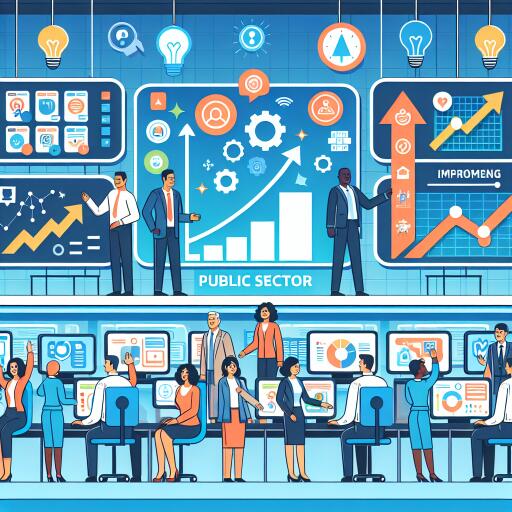Riverbed Survey Uncovers Shift in Public Sector Towards Enhancing Digital Experiences for Workforce and Public
According to a recent overview, nearly all leaders within the public sector recognize the urgency of advancing digital experience (DEX) technology. An impressive 90% affirm it as a crucial agenda item for the forthcoming half-decade, with 80% preparing to fast-track its adoption and application.
The integration of DEX solutions signposts a pivotal transition aimed at augmenting the digital interface for both employees and the public, facilitating significant objectives like maximizing staff efficiency, attracting and retaining skilled personnel, and accomplishing core missions. This strategic pivot is increasingly vital in navigating obstacles such as the escalation of hybrid work environments and the looming skills shortage, exacerbated by the rapid evolution of the workplace and workforce.
A noteworthy shift is the generational change in the workforce, with retiring veterans making way for digitally adept Millennials and Gen Z professionals. This new wave of employees brings elevated expectations concerning technological resources and their digital experiences. A survey highlights that 86% of public sector leaders anticipate the necessity to elevate digital experiences to meet the standards of the incoming workforce.
This anticipation is steering investments towards unified observability platforms. Such platforms stand out for their ability to offer remarkable DEX by granting comprehensive insights across the entirety of an organization’s infrastructure, powered by AI and automation. This move is seen as a solution to bridge the skills divide, with 74% of IT professionals in the government sector affirming its potential to mitigate the expertise shortage.
Furthermore, the push towards enhancing digital experiences transcends employee satisfaction, with 58% of public sector chiefs predicting significant disruption or damage to their organization’s reputation should they fail to meet the digital expectations of younger generations. A similar sentiment is echoed by 63%, who believe that failing to provide seamless digital experiences could lead to a talent exodus.
The evolving landscape places the Public Sector CIO in a spotlight, demanding a shift towards a more central role in strategic decision-making, particularly in aspects that influence recruitment and productivity. A significant majority, 81% of decision-makers, acknowledges the growing importance of IT within the leadership framework, with a near-unanimous 89% asserting that IT’s role in driving innovation has magnified over the past three years.
Investment priorities within the public sector are clearly leaning towards pioneering technologies like the cloud, AI, and automation, deemed crucial for the near future. With an overwhelming 88% of leaders underscoring the importance of unified observability for delivering superior DEX, there is a consensus on the need for augmented investment in solutions that provide actionable insights to elevate the digital experience for employees and the public alike.
Addressing the paradigm shift, it becomes evident that the public sector is set on leveraging technology to surmount prevailing challenges and harness data-driven decisions to support their mission. This focus is not just on enhancing the internal digital arena but also aims at enriching the citizen’s interface with government services, thereby fostering an environment of innovation and efficiency.
The comprehensive survey undertaken by Riverbed and led by Sapio Research in May 2023, canvassed 1,800 IT and business decision-makers across 10 countries and seven industries, including an insightful segment on 320 public sector leaders. This study has shed light on the evolving expectations, hybrid work dynamics, the transforming role of IT, and the hurdles and strategies pivotal to rendering exceptional DEX.
In conclusion, the transition towards a more digitally empowered public sector is underway, with significant investments in technology aimed at remedying the challenges of today whilst gearing up for the demands of tomorrow. This forward-looking approach, rooted in enhancing digital experiences, is poised to redefine how the public sector interacts internally and serves the citizenry, marking a new era of efficiency and engagement in governance.









